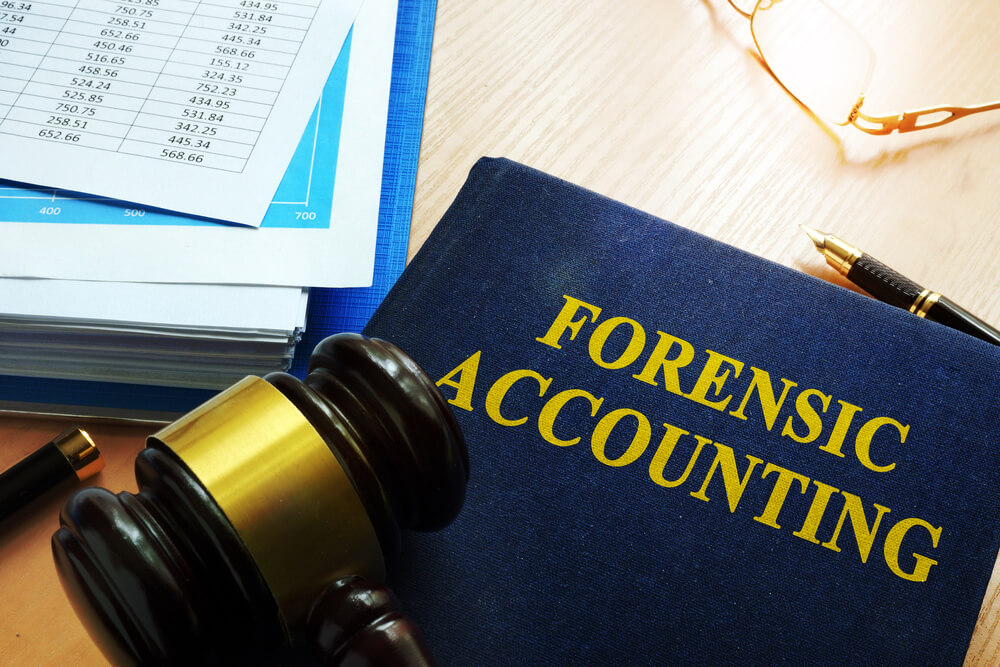When a business dispute becomes complicated, numbers often tell a story that words cannot. That’s where forensic accounting plays a crucial role. At Joey Friedman CPA PA, Mr. Joey Friedman provides financial clarity in contentious situations by uncovering, analyzing, and presenting data that helps resolve conflicts effectively and credibly.
Forensic accounting gives both parties and the court the clarity needed to move toward resolution, whether the issue involves a partnership disagreement, allegations of financial mismanagement, or contract violations. It’s not just about discovering discrepancies but about presenting financial truth objectively and precisely.
What Is Forensic Accounting?
Forensic accounting is a specialized branch of accounting that focuses on investigating financial data for use in legal proceedings. It involves examining records, transactions, and reports to detect fraud, evaluate losses, and interpret complex financial scenarios. The purpose is not only to identify what happened but to explain it in a legally relevant and defensible way.
Mr. Joey Friedman, a seasoned forensic accounting expert, applies methodical analysis and investigative techniques to illuminate the facts behind the figures. His work often becomes the cornerstone of a legal argument, whether in court or during settlement discussions.
Why Forensic Accounting Is Essential in Business Disputes
Business disputes often stem from money—how it’s earned, shared, lost, or spent. When two parties disagree on financial facts, forensic accounting provides an objective analysis that removes speculation.
Here’s how it helps:
- Clarifies financial responsibilities
- Identifies improper use of company funds
- Quantifies damages or losses
- Validates or challenges accounting practices
- Strengthens credibility in legal negotiations or court proceedings
Disputes fueled by assumptions or unsupported claims are unlikely to reach fair outcomes. With Mr. Friedman’s forensic analysis, the parties involved can better understand the financial reality and move toward settlement based on evidence, not emotion.
Common Types of Business Disputes Requiring Forensic Accounting
1. Partnership and Shareholder Disputes
Conflicts among business partners or shareholders can escalate quickly when money is involved. Disagreements may arise over:
- Unequal distributions
- Misappropriation of assets
- Undisclosed compensation
- Disparities in financial reporting
Mr. Friedman reviews internal records, tax filings, bank transactions, and operational documentation to assess whether funds were handled properly. His objective evaluation often clarifies misunderstandings or confirms wrongdoing.
2. Breach of Contract Claims
In commercial litigation, one party may allege that another failed to meet its contractual obligations. Forensic accounting helps determine:
- The financial impact of the breach
- Whether expected revenues or costs were distorted
- The legitimacy of lost profits or business interruption claims
By applying structured models and industry standards, Mr. Friedman supports his findings with precise and persuasive data.
3. Business Valuation Disputes
Valuing a business is often central to disputes involving buyouts, dissolutions, or partner exits. A forensic accounting expert evaluates:
- Historical performance
- Asset and liability disclosures
- Cash flow patterns
- Hidden liabilities or off-book transactions
Mr. Friedman ensures that valuations are based on clean, vetted financials that reflect the actual condition and worth of the business.
The Role of a Forensic Accounting Expert
A forensic accounting expert is more than a financial investigator. They serve as a neutral, credible resource to untangle complex financial claims and translate them into understandable, verifiable evidence.
Mr. Friedman performs several core functions in his role as an expert:
- Conducts thorough document review
- Traces the flow of funds
- Evaluates internal control systems
- Calculates damages with accepted methodologies
- Identifies red flags and financial irregularities
- Prepares expert reports
- Serves as a forensic expert witness, if required
This blend of analytical and communicative skills enables him to support legal teams with reports and testimony that meet professional and legal standards.
Forensic Accounting vs. Traditional Accounting
The work of a forensic accountant is distinct from that of a traditional accountant. While both are rooted in financial analysis, forensic accounting involves deeper scrutiny, an investigative mindset, and the expectation that findings may be challenged in court.
Key differences include:
| Traditional Accounting | Forensic Accounting |
| Focuses on financial reporting | Focuses on uncovering and analyzing disputes |
| Prepares tax returns and financials | Traces transactions and evaluates evidence |
| Assumes data integrity | Questions data and identifies inconsistencies |
| Not usually involved in litigation | Often central to legal proceedings |
Mr. Friedman combines his background in CPA-level accounting with a forensic lens, enabling him to assess records not only for accuracy but for legal relevance.
Forensic Expert Witnesses in Court and Settlement
Not all disputes go to trial, but when they do, forensic expert witnesses play a critical role. Courts require that expert testimony meet specific standards for reliability and relevance. Mr. Friedman is experienced in preparing testimony that satisfies these standards, whether in deposition, arbitration, or trial settings.
His reports and statements are structured to:
- Explain the methodology behind findings
- Present data clearly and logically
- Hold up under cross-examination
- Remain unbiased and fact-driven
Even outside the courtroom, the presence of a well-prepared forensic accounting expert can influence settlement discussions significantly. When each side sees the depth of analysis behind a claim, the incentive to settle increases.
Regional Expertise: Forensic Accounting in Miami and Florida
Legal and financial landscapes vary by jurisdiction. For clients in Miami and across Florida, regional knowledge is essential. Mr. Friedman brings extensive experience in forensic accounting in Miami and forensic accounting in Florida cases, understanding local business norms, legal expectations, and industry practices.
This familiarity allows for more nuanced analysis, especially in industries common to the region, such as real estate, hospitality, healthcare, and import/export.
Common Methodologies Used in Forensic Accounting
A strong forensic accounting investigation relies on the use of structured and accepted methodologies. These techniques allow the expert to produce conclusions that are not only accurate but also defensible in legal settings. Some of the most common methods used include:
- Trend analysis – identifying irregular financial patterns over time.
- Vertical and horizontal financial analysis – comparing financial ratios and line items across periods.
- Benford’s Law – a statistical tool used to detect anomalies in datasets.
- Transaction tracing – following the movement of funds through accounts and entities.
- Comparative benchmarking – evaluating a business’s performance against similar organizations or industry norms.
Mr. Joey Friedman utilizes these and other techniques to uncover inconsistencies, verify accuracy, and draw conclusions grounded in reliable evidence. These methodologies ensure that the results are objective and persuasive, regardless of the complexity of the dispute.
Analyzing Documents and Digital Evidence
Forensic accounting often begins with the careful examination of physical and digital records. These can include:
- General ledgers and journal entries
- Bank and credit card statements
- Tax filings
- Loan agreements
- Payroll records
- Vendor and customer contracts
- Emails and internal communications
Each document provides a piece of the puzzle. A forensic accounting expert identifies connections, discrepancies, and data gaps that may suggest improper activity or misrepresented financials. Mr. Friedman approaches this process with diligence and attention to detail, ensuring no critical information is overlooked.
Fraud Detection and Prevention
While not every business dispute involves fraud, forensic accountants are trained to identify indicators of intentional wrongdoing. Mr. Friedman’s work often uncovers red flags such as:
- Unauthorized transactions
- Falsified financial statements
- Hidden liabilities
- Improper expense classifications
- Conflicts of interest in vendor relationships
Even in the absence of overt fraud, forensic accounting can reveal poor financial controls or unethical business practices that contribute to disputes. In this way, the analysis serves both reactive and preventative purposes—resolving the current conflict and helping to safeguard against future issues.
Supporting Discovery and Legal Strategy
Discovery is a critical phase in business litigation, and forensic accounting plays a central role in that process. Mr. Friedman works with legal teams to:
- Identify relevant financial records
- Interpret documents obtained in discovery
- Highlight inconsistencies in opposing disclosures
- Recommend further document requests
- Develop targeted lines of questioning
This collaborative approach strengthens the attorney’s position and ensures that financial arguments are based on complete and accurate information. By bridging the gap between financial data and legal context, Mr. Friedman becomes a valuable strategic asset.
Forensic Accounting’s Impact on Dispute Resolution
Whether a case ends in settlement, arbitration, or trial, forensic accounting often guides the direction and outcome of the dispute. Accurate financial analysis has the power to:
- Support clear and justifiable settlement proposals
- Demonstrate the scope and legitimacy of damages
- Reduce uncertainty around financial facts
- Promote resolution through objective evidence
- Minimize courtroom surprises by anticipating opposing arguments
In many cases, the presence of a thorough and impartial forensic report encourages earlier settlement, saving all parties time, expense, and risk.
The Qualities That Matter in a Forensic Accounting Expert
When selecting a forensic accountant for a business dispute, legal teams look for more than just technical knowledge. The most effective experts also bring:
- Credibility – a proven history of integrity and objectivity
- Litigation experience – comfort with legal procedures and courtroom expectations
- Clear communication – the ability to explain findings in plain language
- Attention to detail – no assumption left unchecked, no figure taken at face value
- Responsiveness – timely analysis that keeps up with fast-moving cases
Mr. Joey Friedman exemplifies each of these traits. His forensic work is marked by professionalism, thoroughness, and a focus on clarity—qualities that attorneys and courts value when the stakes are high.
Conclusion: A Powerful Tool for Resolution
Forensic accounting is a tool for truth, fairness, and resolution. In business disputes where financial facts are contested or unclear, the insight of a forensic accounting expert is often the turning point. From tracing transactions to quantifying losses to providing expert testimony, forensic accounting offers structure and clarity in the face of complexity.
For those in Miami and throughout Florida, Joey Friedman CPA PA is a trusted resource for professional, comprehensive, and litigation-ready forensic analysis. Mr. Friedman works alongside legal teams to uncover the facts, support negotiations, and, when necessary, present findings in court with the confidence and credibility of an experienced forensic expert witness.
If your case demands accurate financial interpretation, objective assessment, and expert reporting, contact Mr. Joey Friedman at Joey Friedman CPA PA.
FAQs
1) Is forensic accounting just for fraud cases?
No, forensic accounting is for more much more than fraud cases. It is used in partnership disputes, contract issues, and figuring out business valuations during legal matters.
2) How is a forensic accountant different from a regular accountant?
A regular accountant focuses on day-to-day finances and taxes. A forensic accountant investigates financial records when something’s being questioned, like in a lawsuit or business dispute.
3) Do I need a forensic accountant even if I’m not going to court?
Possibly, yes. Forensic accountants can help settle things before they reach the courtroom by providing clear, credible financial evidence that both sides can agree on.
4) Can forensic accounting help my lawyer during a business dispute?
Definitely. Forensic accountants work with legal teams to find, explain, and present financial facts, making the attorney’s case stronger and more informed.
5) Does forensic accounting only deal with big companies?
Not at all. Small businesses often need forensic accounting too, especially during breakups, buyouts, or when money goes missing or isn’t adding up.





